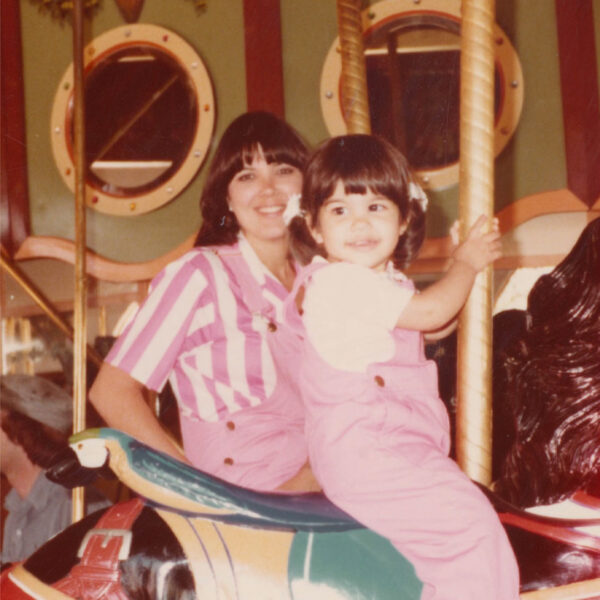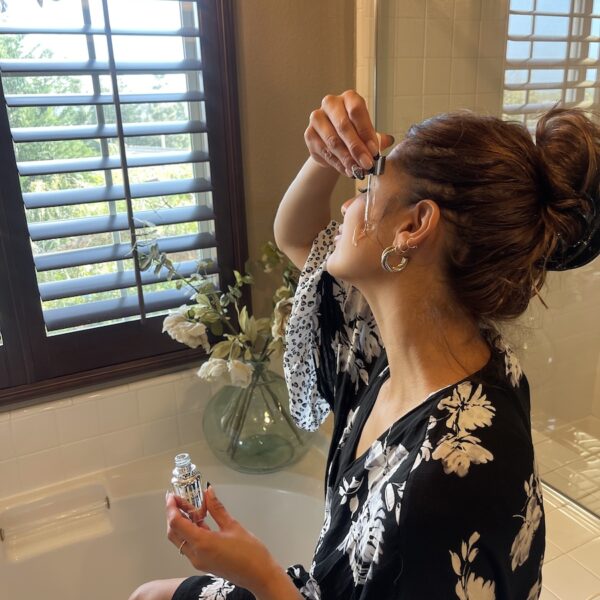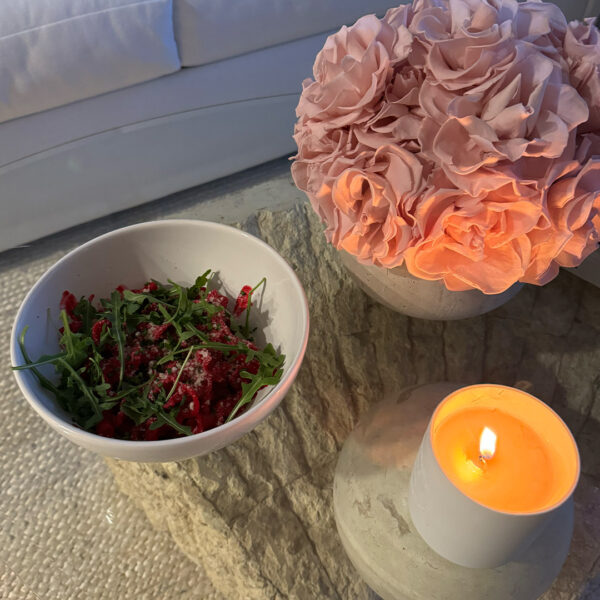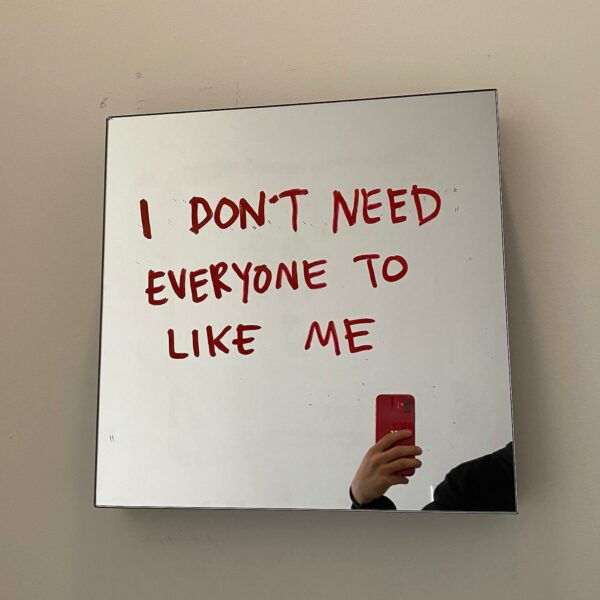
Kourtney Kardashian
Life is challenging for all of us. It seems like we are experiencing peak levels of pressure, stress, competition, comparison, and mental health issues in our society. One way we can combat this is to gather around each other, support one another, and respect each individual’s unique vulnerabilities. We are ALL dealt a certain card in life. Some people have issues with their bodies, learning issues, relationship problems, loss, traumas, everyday stressors, dependency and addiction issues, anxiety, and so much more. You never know what is going on behind the scenes in someone’s life. Remember that someone’s life is very rarely like the highlight reel you see on social media.
I guarantee that if you are struggling with something, someone else is too, and we can often learn from each other when we share a struggle in common. Instead of isolating ourselves—and other people—we need to learn how to communicate our struggles and ask for support and help. We can work together to create communities where we have people we can trust in our lives and the courage to communicate when we need support or help.
I spent some time speaking with other women about what they believed to be the sources of their stress, as well as where they would like to see more support. In our conversations, some key themes emerged, which I’ll be exploring today.
1. Technology and Social Media: Most of us are affected, negatively, by what we see on social media. We struggle with how others present themselves and can’t trust that what we’re seeing is authentic. We also struggle to present our authentic selves on social media, for fear of judgment.
2. Values: Many of us feel increasingly unsure of our values: what we stand for and what’s truly important to us. Because we are not sure of our values, we struggle to build meaningful communities for ourselves.
3. Confidence: Being confident on the inside and out seems out of reach for many of us. We want to understand how to cultivate mental, emotional, physical, and spiritual confidence.
Technology and Social Media
The Digital Self is the term that I use for our online presence. It’s a wholly separate identity from who we are in real life. At one end of the scale, it’s a relatively honest extension of our day-to-day lives: a snapshot of a design in the foam of our cappuccino, then a work-weary proclamation of “TGIF” when the weekend arrives. For people with regular 9 to 5 jobs who aren’t using social media to market a business or side career, this is pretty common.
Then there is the tireless self-marketer who may be promoting an actual business, or the individual who is simply compelled to document and share everything 24/7. This person may be neglecting their exercise, sleep, friendships, or other forms of self-care because their digital self is so active online.
At the dishonest end of the spectrum, there are people whose online existence is a complete falsehood. You may have heard the term “catfishing,” where people pursue an online romance under a totally false identity. There is a part of them that craves interaction but believes they cannot participate in the world on honest terms.
Most of us don’t go that far, but when we present ourselves online, do we routinely leave out the more vulnerable or human aspects, and instead choose to present only our most shining moments of victory? We may not be outright lying online, but many of us participate in “lies of omission” by manipulating our digital stories to only reflect a self we believe others will envy. This can perpetuate a culture of “compare and despair,” which can really thin the fabric of our relationships and isolate us, even on a platform whose purpose it is to bring us closer together.
Today I encourage you to be as authentic as you can! Express yourself and don’t hide behind a filter. We all appreciate connecting with people who are real and human. Start presenting who you truly are today on social media, and that will encourage others to do the same.
Values are spiritual principles and beliefs that govern our actions. They are internal guidelines that determine our priorities and let us know when we’re living in sync with what we feel is most important to us.
When our actions match our values, we experience congruence, a sense of harmony and peace. But when our actions are out of alignment with our value system, we instead feel a sense of unhappiness, anxiety, and despair.
We may end up using distractions—food, addictive substances, technology, and other people—to mask this inner turmoil, trying to numb and silence our inner voice. We may become physically ill or suffer from mental illnesses such as depression or anxiety. Our relationships may suffer, and we may find ourselves surrounded by people who reflect this lack of alignment and inner chaos.
Our values are innate and unique to us, like our DNA or our fingerprints. Learning to recognize our own values and build our lives around honoring them can mean the difference between having ease and tranquility or having stress, conflict, and confusion.
So just how can you determine your core values? Well, first think back to the times in your life when you were the most content, fulfilled, and proud. What were you doing? Where were you? What were the circumstances? What was the occasion? Why did you feel so happy? What made you feel proud? How did these experiences provide your life with meaning and purpose? Write down the answers to these questions now.
If you are writing about time spent in nature yet you work in a closed-off indoor location that suffocates you, you may have to seriously reconsider your choice of employment. Similarly, if you are writing about acting, singing, performing, and dancing, yet you work in an office doing left-brained activities, it might be time to reevaluate your choices. By getting clear on our values, we can then examine our choices in a new light, measuring them against our newly defined internal compass. This way you can get to know what you value and find a community based on this. If you value health, join a hiking or running group. If you value leadership, join a think tank or networking group that focuses on world issues. There are many ways to build community from this exercise.
Confidence can be defined as the feeling that you will be successful in achieving that which you set out to do, whether it’s dancing, finding a dating partner, solving the world’s dire problems, or ice skating for the first time. Confidence isn’t always based on proven skill or acumen. It can sometimes be based merely on a bedrock belief in yourself that no one can refute. True confidence is cultivated and nurtured from within, although external forces and pressures can sometimes shake or affect our confidence.
Some people envy those with confidence, believing it to be something you’re born with or something you grow up with. However, anyone at all can decide to have confidence and presto! They have it! Confidence is really about an attitude, a state of mind, and a decision to overcome all obstacles placed in one’s path without hesitation. It’s learning to love yourself just as you are.
Confidence is not necessarily about building yourself up with empty, unrealistic praise. Rather it is the idea that you can handle anything and have what it takes to improve at things you are not yet good at. Confidence tells you that it is possible to learn on the job, to acquire new experiences, and to be enriched by them.
Creative visualization is an especially useful tool for creating confidence. If you can visualize yourself succeeding before attempting a task, you are far more likely to achieve your goal.
Athletes visualize scoring a goal before they go out on the field, and actors visualize receiving a standing ovation before going out on stage. Even if you are just planning to go out on a date, visualizing lively conversation and a genuine connection can increase your confidence tremendously.
What’s remarkable about the human brain is that it can quickly establish new pathways with simple repetition. By repeatedly telling yourself you are smart, capable, talented, loveable, and successful, your brain gradually rewires itself and starts to produce the “chemicals of success.”
Listening to positive messages in guided meditation, posting notes of encouragement around your house, and surrounding yourself with only the most loving, kind people in your life are also all highly effective in working to reverse any self-defeating patterns.
In The Rewired Program, I cover technology, values, and confidence extensively, helping people explore their patterns in these areas through lessons and interactive exercises. You can get a sneak peek at The Rewired Program plus a free list of 100 core values at rewiredprograms.com. Head over now to check it out.
Erica Spiegelman is a wellness specialist, recovery counselor, and author of the new book The Rewired Life (2018) as well as Rewired: A Bold New Approach to Addiction & Recovery(2015), the Rewired Workbook (2017), the Rewired Coloring Book (2017), all published by Hatherleigh Press. Erica holds a bachelor’s degree in literature from the University of Arizona and is a California State Certified Drug and Alcohol Counselor (CADAC)-II from UCLA. For more information, visit Erica’s website or follow @Erica Spiegelman on Instagram.






































